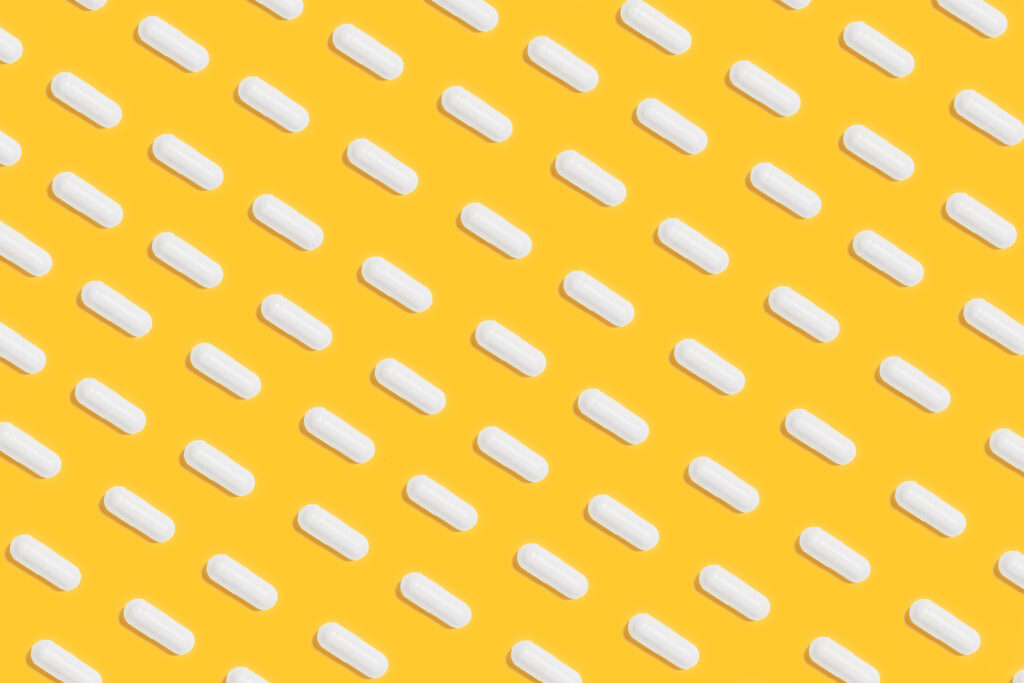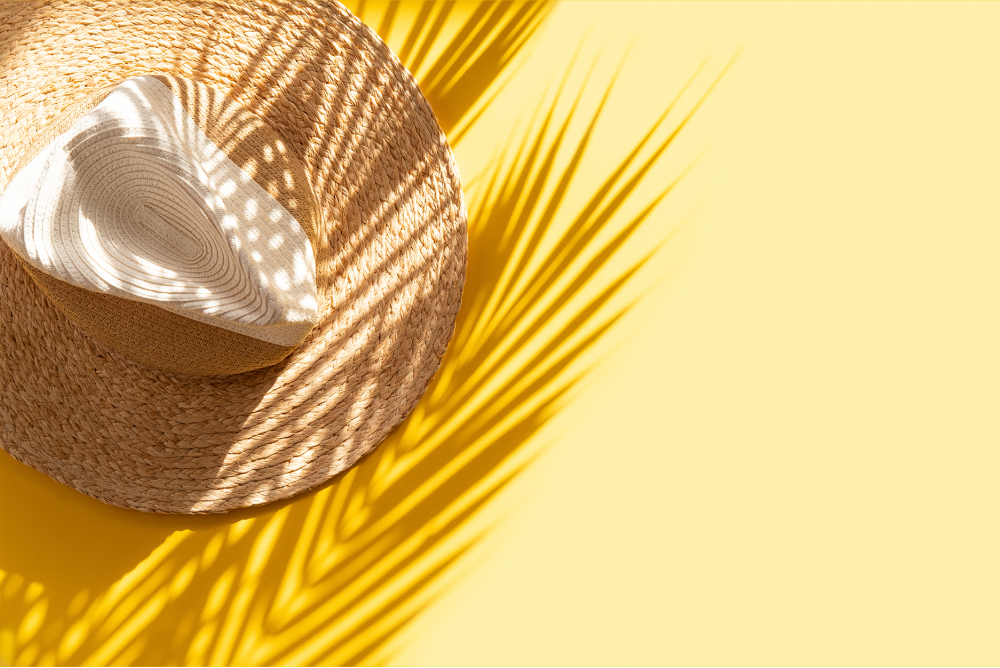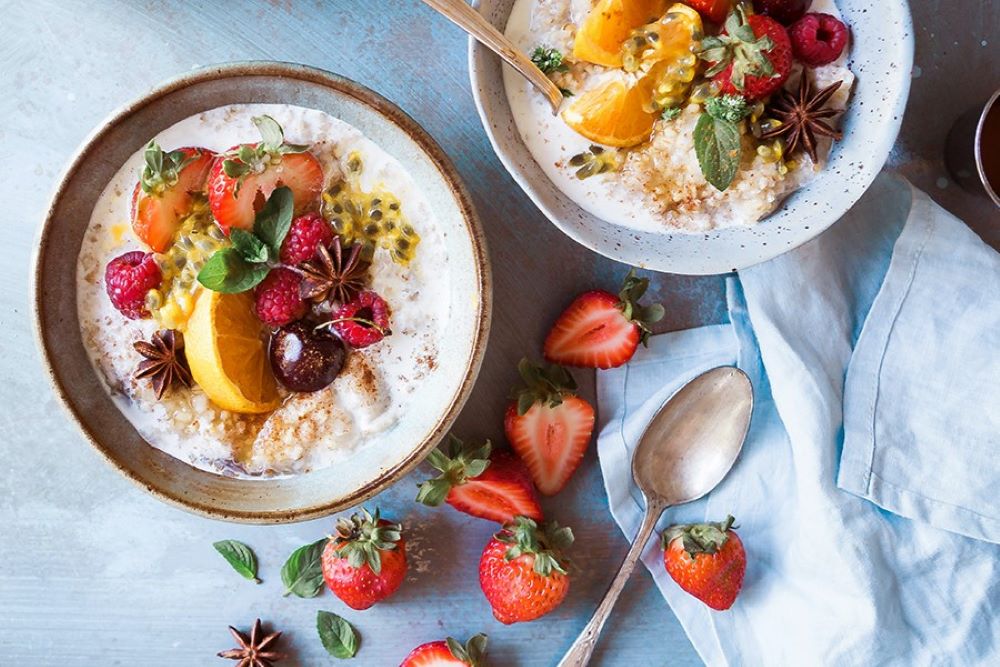Ask A Dermatologist: Sun Protection And Skin Cancer

Link to share article here:
Ask A Nutritionist: On Supplements, Skin and Menopause
Optimising your health is not always about working harder, it’s about working smarter. When it comes to skincare this means trusting the experts to deliver personalised, targeted treatments. When it comes to supplements, that might mean checking in whether you need some support to keep your mental and physical health in balance. Enter Doctor Seaweed: a brand that harnesses the power of ocean-sourced nutrition to support your well-being, with a focus on naturally balancing hormonal health.
On World Menopause Day, we speak to Doctor Seaweed’s nutritionist, Sarah Jane Hall to discover more about their approach to nutritional wellness.
Skin + Me: Tell us briefly about your role as a Nutritionist at Doctor Seaweed and what you do.
Sarah Jane Hall: At Doctor Seaweed, we provide nutrition through our range of Weed & Wonderful® products. The specific nutrient that we focus on is iodine, which around 80% of women in the UK aren’t getting enough of, and which seaweed is the only natural, plant-based source of.
My role involves supporting customers and helping them to see how they can fit seaweed into their lives, and how it can help them to meet their wellness goals. I’m also involved in new product development, in terms of thinking about what specific nutrients will be the most beneficial to include in the different products in our range. Another of my main roles is engaging with our university partners on the extensive research that we do around the essential nutrition that can be obtained from seaweed.
Skin + Me: What are your top three nutrition tips for everyone?
Sarah Jane Hall: There are so many simple things we can do to improve nutritional intake.
Swap out white carbohydrates for wholegrain whenever you can. That’s because white carbohydrates are highly processed and lower in fibre, whereas wholegrain carbohydrates are a better source of fibre, so better for our gut health, as well as other important nutrients such as B vitamins.
Include fruit or vegetables at every opportunity – this is such a simple way to add more nutrients to your diet. Adding berries to your porridge or yoghurt, and spinach leaves to your sandwich and throwing some diced veggies into your pasta sauces are all easy ways to boost the nutrient and fibre intake of your meals and snacks.
My final top tip would be to stay hydrated. Drinking enough water is so important as we need it for all of the processes in our body to function properly and you will really notice a difference when you start hydrating properly. It helps you to feel energised, it helps with digestion and it’s amazing for keeping skin looking healthy and hydrated too!
Skin + Me: What are the top macro and micronutrients people tend to be lacking in a modern diet?
Sarah Jane Hall: One of the most important macronutrients that people tend to be lacking in fibre. Thankfully, people are becoming more aware of the multiple health benefits that it has, from its role as a prebiotic for good gut health, to how it can decrease the risk of experiencing more serious health issues such as heart disease. Wholegrain carbohydrates, fruits, vegetables, beans and nuts are all high-fibre foods that we should try and include more of in our diet.
Iodine is an essential micronutrient that huge percentages of the population are lacking, and it is so often overlooked. We need it to make thyroid hormones, and when we can’t do this properly it can have all kinds of negative health impacts ranging from dry skin to tiredness and fatigue.
The only good dietary sources of iodine are white fish and dairy – which is why so many people are deficient as we just don’t eat enough of these foods to meet our body’s iodine needs. The only plant-based source of iodine is seaweed – which is why our capsules make it so easy for everybody to ensure they’re getting enough of this essential nutrient.
Iodine is an essential micronutrient that huge percentages of the population are lacking, and it is so often overlooked.
Skin + Me: What’s the most common complaint you see through sub-optimal nutrition when customers come to you for support at Doctor Seaweed?
Sarah Jane Hall: The main issue that our customers have is around their thyroid health, as a lack of iodine in the diet can have a real negative impact on this. However, in a lot of cases, the customer may not even realise that this is the issue. That’s because clinical and subclinical hypothyroidism is so misunderstood and the symptoms are so wide-ranging, meaning that it can easily get confused with other conditions. The NHS website provides a full list of symptoms, but the main ones that we see are dry skin, a lack of energy and difficulty losing weight.
One of the most rewarding aspects of my job at Doctor Seaweed is hearing the testimonials from our customers about the impact that our supplements have had on the quality of their lives by improving thyroid function, simply by introducing natural nutrition from seaweed.
Skin + Me: What are your three top nutrition tips for energy?
Sarah Jane Hall: Eating regularly – it’s hard to feel energised if you’re feeling hungry, so eating regularly can really help you to maintain energy levels. Make sure you’re eating three balanced meals a day, and keep healthy snacks on hand such as fruit or nuts. Making sure you’re including enough protein in your meals and snacks will also help to keep you feeling full.
Keep blood sugar levels stable – this is key as when blood sugar levels drop, we can feel drained and energy depleted. Choosing foods that have a low Glycaemic Index (GI) means they will release their energy to the body over a slower period of time, keeping blood sugar levels stable and avoiding that energy slump. Foods that are high in fibre tend to have a lower GI, so foods such as oats, beans, fruits and vegetables are all good options.
Consider supplementing – it’s always best to try and get all the nutrients that you need from a varied diet, however, this isn’t always possible. There are certain nutrients that are essential for energy and can be really hard to come by in the diet. Our seaweed capsules provide a totally natural source of iodine, and one of the main things we get feedback on from our customers is how much their energy levels have improved.
Skin + Me: What are your three top nutrition tips for maintaining healthy skin?
Sarah Jane Hall: Eating plenty of fruits and vegetables is amazing for our skin, thanks to their vitamin C content. Because vitamin C is an antioxidant, it helps to protect our skin against damage from things such as UV rays and air pollution. It’s also needed to help our skin produce collagen, to help maintain a healthy, youthful glow.
Cutting back on alcohol can really work wonders for our skin, that’s because alcohol causes us to become dehydrated. If our skin is dehydrated from the inside, then there’s little we can do topically to hydrate it properly from the outside. Ensuring that you have more alcohol-free days per week than ones where you do drink will help to minimise dehydration.
If our skin is dehydrated from the inside, then there’s little we can do topically to hydrate it properly from the outside.
Something that’s so often overlooked when it comes to maintaining healthy skin is the thyroid. If we’re not giving this gland the nutrition that it needs to function properly, it can become underactive. One of the main symptoms of an underactive thyroid is dry, scaly skin. Both iodine and selenium are essential for healthy thyroid function, so ensuring you’re getting enough of these nutrients in your diet really is key to getting that healthy glow from within.
Skin + Me: What are your three top nutrition tips for pre, during and post-pregnancy?
Sarah Jane Hall: Ensuring that you’re getting all the nutrients that you need in your diet pre-pregnancy is so important. This is to make sure that your nutrient stores are built up and won’t be depleted during pregnancy. There are certain nutrients that are particularly important during very early pregnancy – these are folate and iodine.
That’s because folate helps to develop the neural tube, which forms the brain and spine of the baby. It’s recommended that you supplement with folate if you plan to conceive throughout the first trimester. Iodine is also essential for developing the baby’s brain and nervous system, again it’s recommended that iodine intake is increased from very early conception, all the way throughout pregnancy and when breastfeeding.
During pregnancy is time to focus on having a lot of variety in your diet. This will make it as easy as possible to ensure that you’re getting a good amount and range of nutrients for both you and the baby. However, pregnancy can really affect appetite, and you may find yourself wanting to only eat certain foods and perhaps less of the good, nutrient-dense foods that you need.
A top tip is to make a smoothie in the morning with lots of different coloured fruits and vegetables, keep this in the fridge and keep sipping on it throughout the day. This will make it so much easier to pack lots of nutrients into your diet, even if you can’t face eating lots of greens at mealtimes.
Post-pregnancy nutrition is just as important as during – the body is now healing and recovering, as well as producing milk to help the baby thrive if breastfeeding. While planning a carefully balanced diet is often the last thing on your mind with a newborn baby, focussing on getting enough protein whenever you do get a chance for a meal or snack will really help to provide your body with the building blocks that it needs to recover.
Skin + Me: What are your three top nutrition tips for ageing well and the menopause?
Sarah Jane Hall: B vitamins are undoubtedly some of the most important nutrients to consider when getting older and during the menopause. As a group, they work synergistically to support some of the body’s most important processes, including those such as hormonal activity and mental performance.
In particular, they can help to tackle certain menopausal symptoms such as brain fog, thanks to them being scientifically proven to support mental and psychological function. Eggs, dairy products and meat all tend to be good sources of B vitamins, with plant-based sources including legumes such as beans, and leafy greens such as spinach.
There’s a lot of interest in the use of phytoestrogens as a way to naturally alleviate the symptoms of declining estrogen levels during menopause. Phytoestrogens are found in plants and have a very similar structure to oestrogen, meaning that they can act the same way within the body.
While more evidence is needed to fully establish whether phytoestrogens are able to improve menopausal symptoms, there is some evidence to suggest that increasing phytoestrogen consumption during menopause can help to reduce some of the common symptoms such as hot flushes. You can add phytoestrogens to your diet by eating foods such as soya, lentils and chickpeas.
The analogous symptoms between an underactive thyroid and menopause mean that misdiagnosis can be common. It also means that if you are experiencing both simultaneously, the symptoms can be worse. Ensuring you get enough iodine during menopause will ensure healthy thyroid function, and reduce the chances of worsening symptoms such as low energy, weight gain and depression. The only good dietary sources of iodine are white fish and dairy, however, if you’re more plant-based, the only good source is seaweed.
Skin + Me: What’s often misunderstood about taking supplements?
Sarah Jane Hall: I think that people underestimate the value of choosing high-quality, natural supplements, often not stopping to look at the ingredients list to see what they are actually paying for. Many people opt for supplements in a tablet-style format; however, my advice is that supplements in capsule format tend to be a much better option.
That’s because capsules are able to contain just the active ingredients, without the need for binding agents. Tablets on the other hand often require multiple synthetic ingredients to help them to keep their shape. This means you’re paying for a lot of ingredients which aren’t actually providing any benefits.
Another thing which I think people misunderstand about supplements is that you should take them on an as-and-when basis. For example, reaching for vitamin C supplements when feeling under the weather. While this of course is beneficial in some cases, with most supplements, consistency really is key. Remembering to take your supplements every day is what’s really going to allow you to feel a difference and to keep on seeing those benefits.
Skin + Me: What are the origins of most of your supplements? Tell us more about their vegan and sustainability credentials.
Sarah Jane Hall: All of the supplements in our range are natural, vegan-friendly and based around our organic Hebridean seaweed. We never use any synthetic nutrients or ingredients from animal sources in any of our products.
Our seaweed is all sustainably wild harvested from the pristine Scottish Outer Hebrides and seaweed itself is inherently sustainable thanks to it not needing fresh water, fertiliser or land space to grow abundantly.
Explore Doctor Seaweed’s range of supplements here.
New to Skin + Me? Get your first month of personalised skincare for £4.99 with promo code DOSE – complete our quick consultation here.
Looking for a routine refresh? Add the Dream Routine to your Skin + Me subscription.
In need of a restock? Head to The Skincare Shop for one-off purchases of your Routine Essentials.



